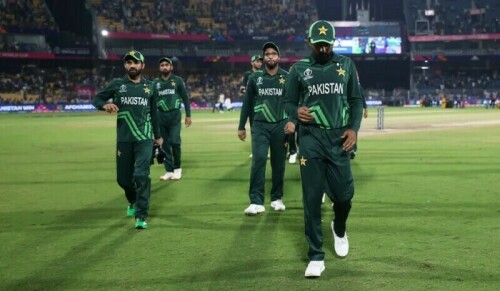NEW DELHI: Indian Premier League (IPL) side Deccan Chargers have been shut down for failing to comply with a deadline to pay overdue player fees, organisers of the Twenty20 league said on Saturday.
The Board of Control for Cricket in India (BCCI) said they made the decision at an emergency meeting late on Friday, pointing to the Hyderabad-based franchise's various defaults including payments to players and foreign boards.
“The BCCI is completely justified in this action which was taken with careful deliberation and only due to the absolute inability of the franchise to effectively run the team,” the BCCI said in a statement.
The future of the 2009 IPL champions, who were skippered by Sri Lankan captain Kumar Sangakkara, looked like being preserved when they were put up for sale last week by cash-strapped Deccan Chronicle Holdings, who had paid $107 million to have the franchise for 10 years in 2008.
Interest had been lodged in buying the side but the BCCI said that Deccan Chronicle Holdings had rejected a bid of 4.5 billion Indian rupees ($82.70 million) and an equal sum in convertible debentures.
This coupled with a letter from the franchise owners' lawyers saying they had done nothing wrong led to the BCCI to shut down the team, which also featured South African quick Dale Steyn, Australian batsman Cameron White and Indian bowler Ishant
Sharma.
“BCCI received a lawyers notice invoking arbitration from the franchise stating that it had not committed any breaches and even if such breaches were committed, the BCCI should not act to terminate the franchise till Yes Bank Ltd furnishes sufficient finance to cure the breaches,” the BCCI said.
“By this, Deccan Chronicle Holdings Ltd has clearly admitted its inability to cure its breaches within the time stipulated in the BCCI notice despite every bit of assistance from the BCCI.
“Since the month of May, BCCI has received repeated assurances that the overdue player fees would be paid; all of these promises have been unfulfilled.”
Deccan are not the first side to be thrown out of the lucrative IPL.
Last year, the board terminated the contract of the Kochi franchise for payment default.
Deccan's demise is another hiccup for the IPL, which began to massive fanfare in 2008, dazzling fans and attracting prominent investors like Reliance Industries chief Mukesh Ambani, India's richest man, as well as spirits and airline magnate Vijay Mallya and Bollywood actor Shah Rukh Khan.
However, a series of scandals has tarnished the league's image.
The BCCI sacked IPL Chairman Lalit Modi in 2010 following corruption charges and viewers' fatigue has prompted a dip in TV ratings as the league's diminishing sheen continues.
Last month, DLF, India's largest real estate firm, terminated the title sponsorship of the league ending a five-year association.
The sixth season of the IPL is scheduled to begin in April next year with eight teams.














































Dear visitor, the comments section is undergoing an overhaul and will return soon.